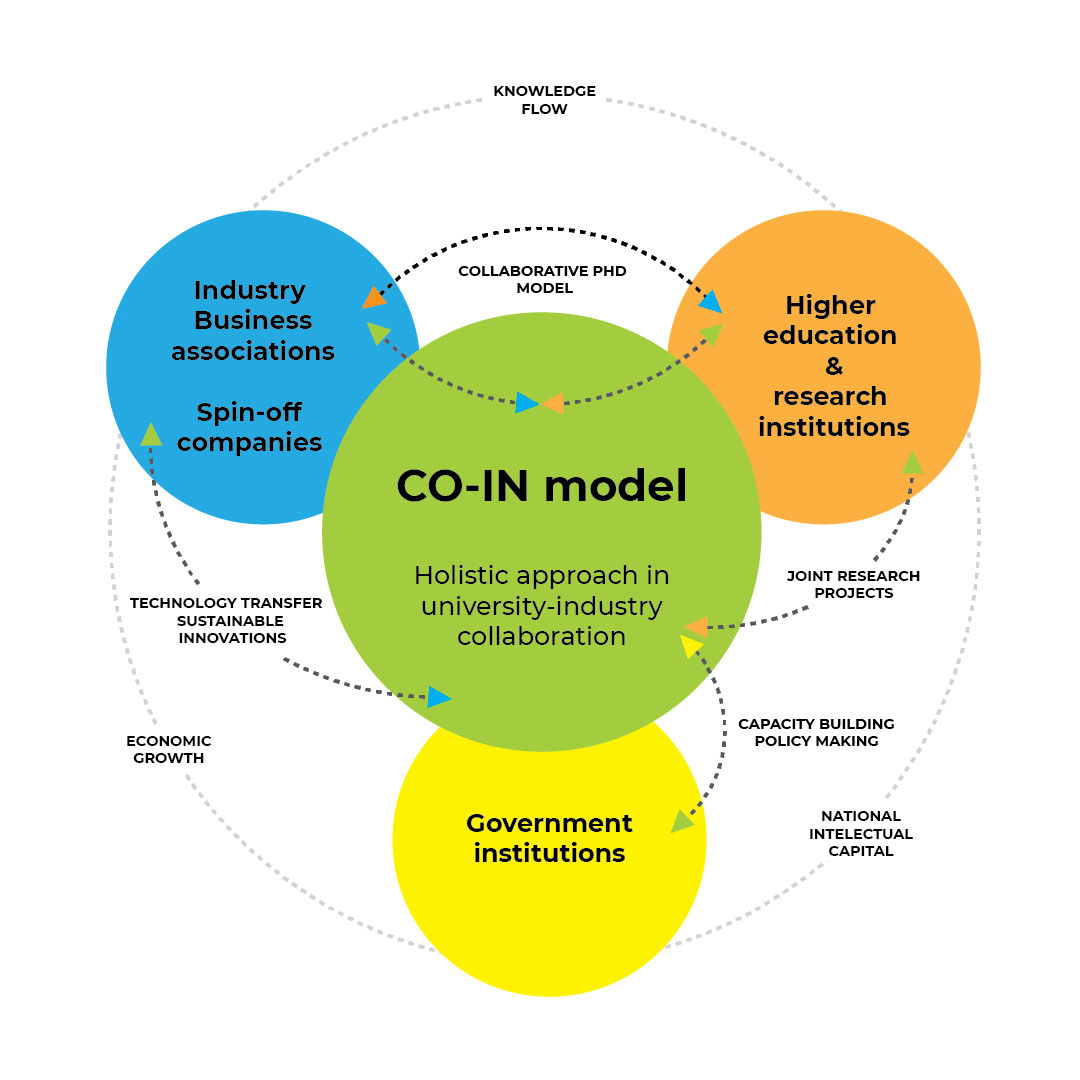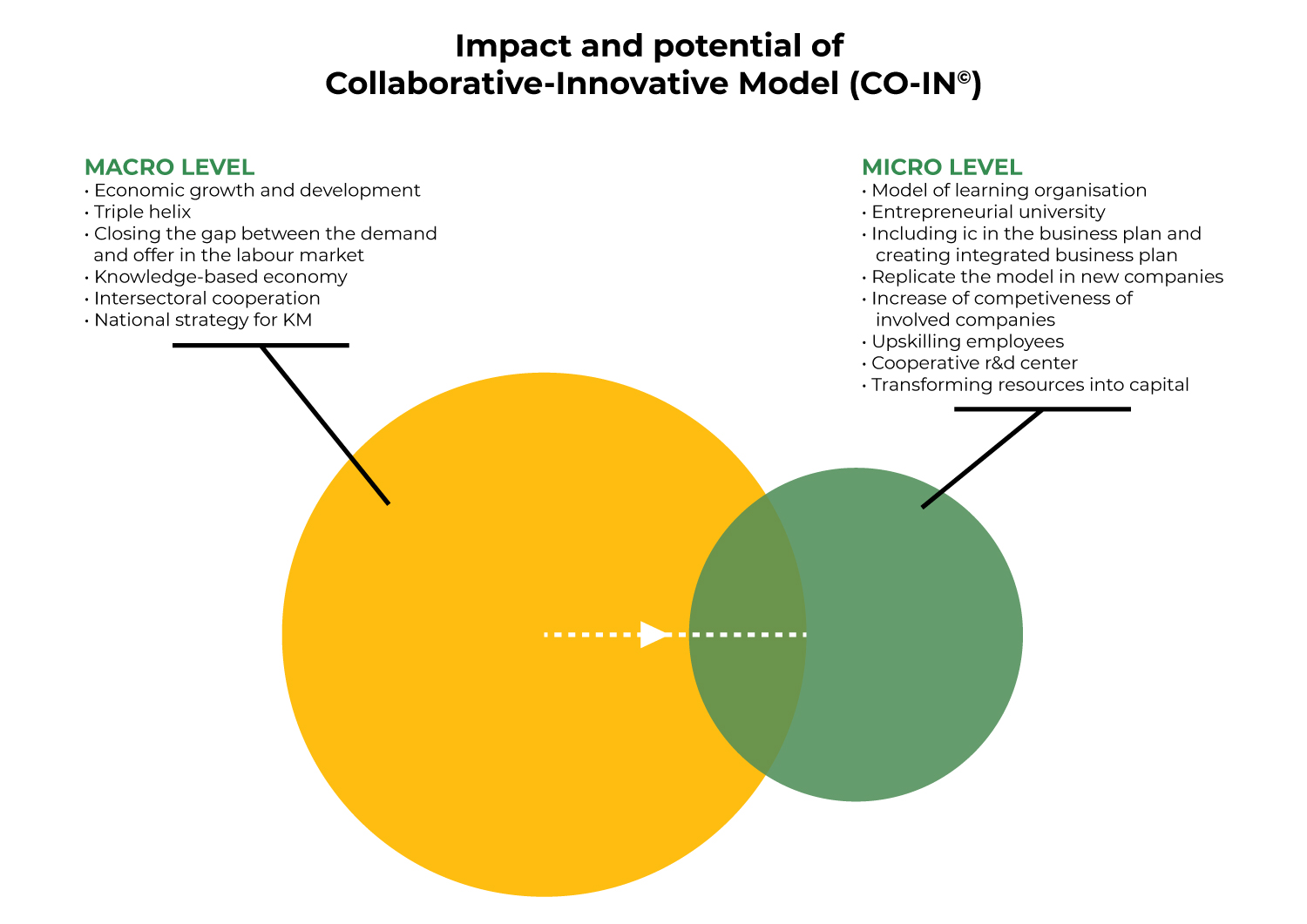The Collaborative-Innovative (CO-IN)© Model is a unique model, designed to establish and enhance collaborative and innovative partnerships and enable achieving sustainable growth of all participating organisations. It supports the knowledge-based economy and increases the competitiveness and innovation of organisations that invest in research and development, co-create and share new knowledge and strengthen the capacities of the human capital according to their needs. This effective model enables communication and long-term cooperation among different relevant stakeholders (industry, government, educational institutions, professional associations and NGOs).
The CO-IN© Model has been validated by:
- The European Commission in 2018, by co-funding an Erasmus+ project: All4R&D, aiming to accelerate research, innovation, knowledge and technology transfer through enhancing strategic academia-industry alliances.
- The European Conference on Knowledge Management in 2020, receiving 1st prize for the Knowledge Management and Intellectual Capital Excellence Awards with the winning case: “Innovative Model for Development of Learning Organisations Through KM and Intellectual Capital”.
- The European Commission in 2022, by funding the multi-million project CATALYST. The core aspect of the project is applying the CO-IN© Мodel, which directly fosters knowledge triangles, and enables the collaboration between educational and business organisations.
The aim of the CO-IN© Model is to build sustainable systems and develop sustainable business models, contributing to the triple helix, strengthening the eco-innovation system and supporting the establishment of learning organisations and entrepreneurial universities.
The effects and benefits of the CO-IN© Model are:
Building an innovation eco-system supporting the knowledge triangle through collaboration and strategic partnerships;
Closing the gap between demand and offer in the labour market and bridging the valley of death;
Supporting the development of sustainable businesses companies, from traditional companies to learning organisations;
Added value from education and research by creating useful knowledge;
Adopting a holistic approach to solving complex, open and connected problems, providing guidance via frame innovation methodology;
Effective tool in addressing complex social, economic, and environmental problems;



